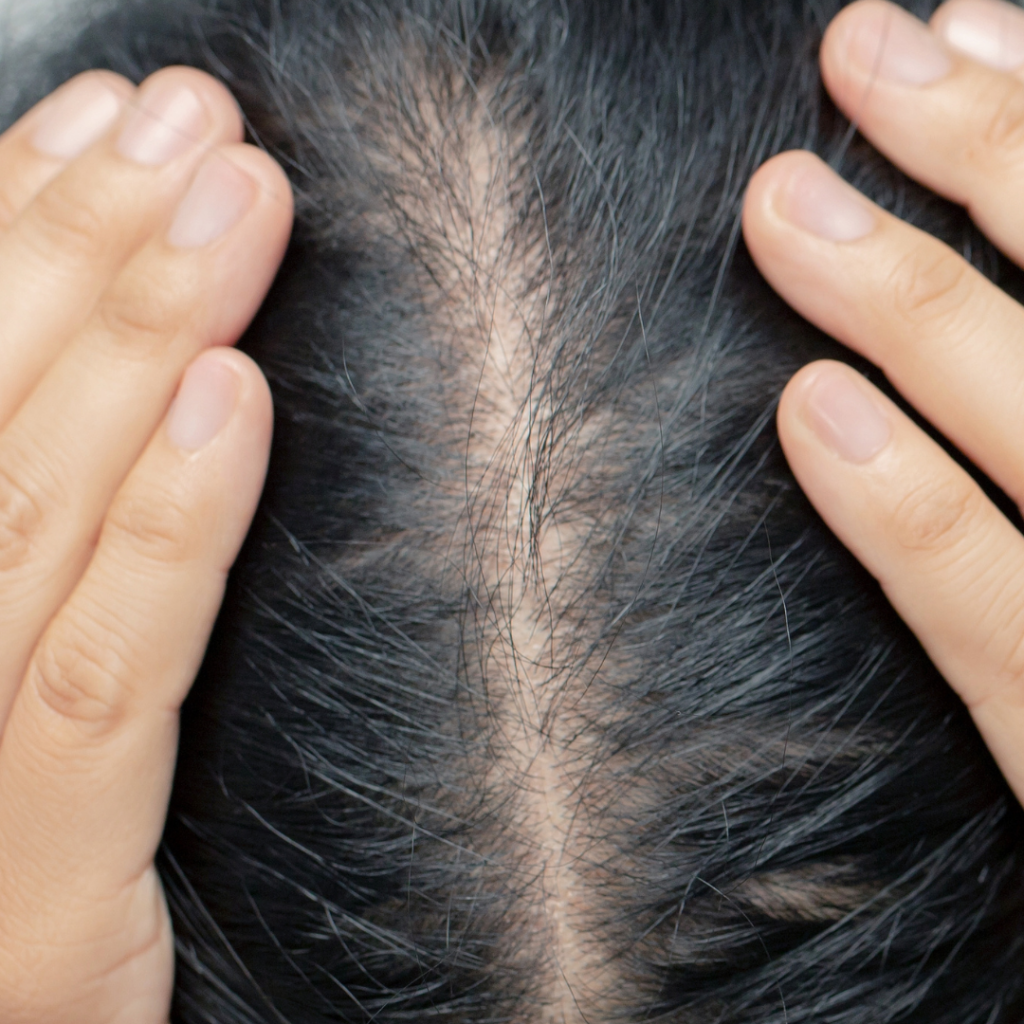Hair Loss from Ozempic, Wegovy (semaglutide) – Weight Loss Drugs



Losing weight can be a significant journey towards better health and improved well-being. However, for some individuals, the pursuit of weight loss comes with unexpected side effects, such as hair loss. Certain weight loss drugs, notably Ozempic, Wegovy (semaglutide), and others, have been associated with this particular side effect. In this blog post, we’ll delve into the relationship between weight loss drugs and hair loss, and explore potential restoration options available for those experiencing this issue.
The Connection Between Weight Loss Drugs and Hair Loss
Ozempic and Wegovy, both containing the active ingredient semaglutide, belong to a class of medications known as GLP-1 receptor agonists. These drugs work by helping people feel full sooner, thereby reducing their food intake and promoting weight loss. While they have shown effectiveness in aiding weight loss efforts, some users have reported experiencing hair loss as a side effect.
The precise mechanism by which these drugs may lead to hair loss is not entirely understood. However, it’s believed that changes in hormonal levels and metabolic processes triggered by these medications could contribute to hair thinning and shedding. Additionally, rapid weight loss itself can sometimes cause temporary hair loss due to changes in the body’s nutrient levels and stress on the system.



Coping with Hair Loss: Restoration Options
For individuals experiencing hair loss as a side effect of weight loss drugs or any other reason, it’s important to explore restoration options that may help address the issue and restore confidence. Here are some potential avenues to consider:
1. Nutritional Supplements: Since hair loss can be exacerbated by nutrient deficiencies, supplementing with vitamins and minerals essential for hair health, such as biotin, zinc, and iron, may help support hair growth and minimize shedding.
2. Topical Treatments: Over-the-counter topical treatments containing minoxidil (Rogaine) have been shown to promote hair regrowth in some individuals. These treatments are applied directly to the scalp and can help stimulate hair follicles.
3. Prescription Medications: In certain cases, prescription medications like finasteride (Propecia) may be prescribed to help slow down hair loss and encourage regrowth. However, it’s essential to consult with a healthcare professional before starting any prescription treatment.
4. Platelet-Rich Plasma (PRP) Therapy: PRP therapy involves injecting the patient’s own platelet-rich plasma into the scalp to stimulate hair follicles and encourage hair growth. While research on its effectiveness is ongoing, some individuals have reported positive results with this treatment.
5. Laser Hair Therapy: Low-Level Laser Therapy is an FDA approved treatment that uses a very specific laser light spectrum to regrow recently lost hair. It also improves the overall health and condition of thinning hair. It is a treatment that works when hair loss is in the early stages. It helps to aid in cell metabolism and microcirculation. This in turn helps provide an ideal growing environment for your hair.
6. Hair Transplant Surgery: For individuals with advanced hair loss, hair transplant surgery may be a viable option. During this procedure, hair follicles from areas of the scalp resistant to hair loss are transplanted to thinning or balding areas, resulting in natural-looking hair growth.
While weight loss drugs like Ozempic and Wegovy can be effective tools for achieving weight loss goals, they may come with the unwanted side effect of hair loss for some individuals. Understanding the potential causes of hair loss and exploring restoration options can help individuals address this issue and regain confidence in their appearance.
It’s crucial to consult with a healthcare professional or a qualified hair restoration specialist to determine the most appropriate course of action based on individual needs and circumstances. By taking proactive steps to address hair loss, individuals can focus on their weight loss journey with confidence and peace of mind.



